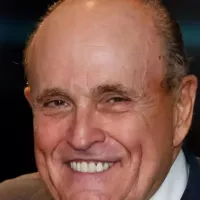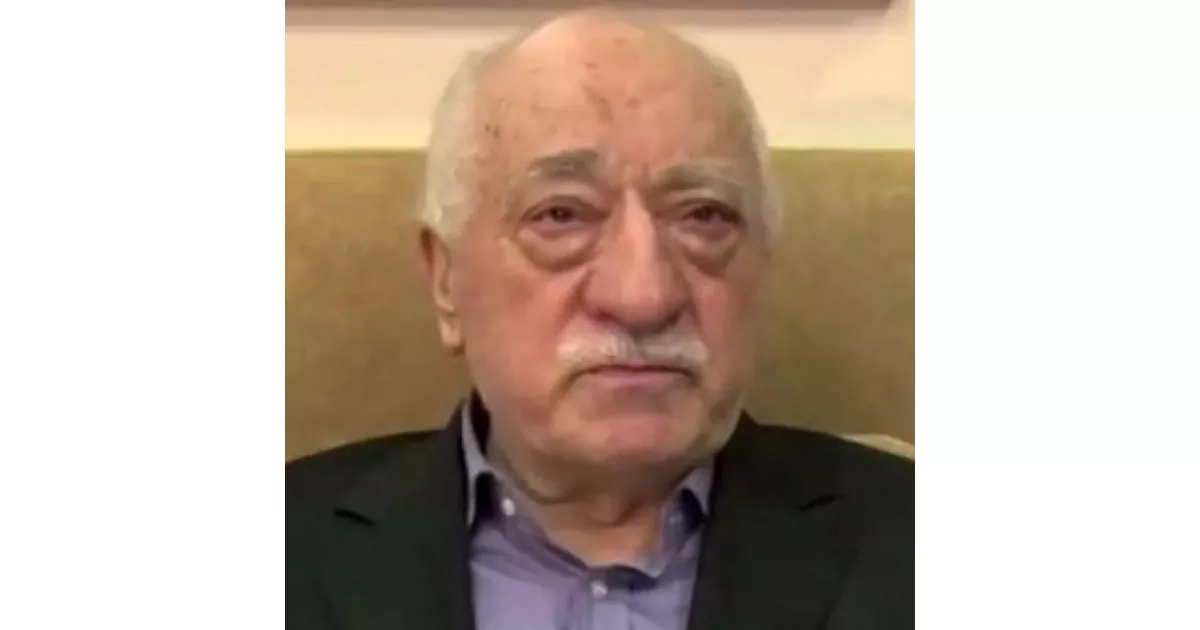Muhammed Fethullah Gülen (1941-2024) was a prominent Turkish Muslim scholar, writer, and social activist. A leader of the Gülen movement, he had millions of followers globally. Gülen's teachings emphasized a Nursian theological perspective that advocates for democratic modernity and interfaith dialogue. He served as a state imam in Turkey until 1981. In 1999, he went into self-imposed exile in the United States, residing in Pennsylvania until his death. Gülen remained an influential figure in Turkish politics, even in exile.
1915: Remembering the Armenian Genocide
Gülen condemned the Armenian genocide of 1915, stating that he knew and respected many Armenians who were killed and massacred during that time. He expressed grief over the massacre and cursed those responsible.
November 1938: Possible Birth Date of Gülen
Some sources suggest that Fethullah Gülen was born on November 1938, coinciding with the death anniversary of Mustafa Kemal Atatürk. However, this date is disputed.
April 1941: Birth of Fethullah Gülen
Muhammed Fethullah Gülen was born in April 1941. While there's some debate on the exact date, official documents support this year.
1958: Gülen Delivers First Sermon
At a young age, in 1958, Fethullah Gülen delivered his first sermon as a licensed state preacher, marking the beginning of his public religious teachings.
August 1959: Gülen Appointed as Assistant Imam
Fethullah Gülen assumed the role of assistant imam at the Üç Şerefeli Mosque in Edirne on August 1959, solidifying his position within the Turkish religious establishment.
1959: Gülen Begins Career as State Imam
Fethullah Gülen's career as a state imam in Turkey began in 1959, marking the start of his formal religious leadership.
1960: Influenced by Said Nursi
Fethullah Gülen's Sufism was significantly shaped by Said Nursi, a Sufi Kurdish Quranic scholar who died in 1960. Nursi advocated for integrating modern education and science with Islamic teachings.
May 1965: Addressing the Armenian Genocide
In May 1965, Gülen penned a letter where he addressed the Armenian genocide.
March 1971: Gülen Arrested
Fethullah Gülen was arrested in March 1971 during a period of political upheaval in Turkey. He was accused of forming a secret religious organization and spent seven months in prison.
1976: Establishment of "Light Houses"
Fethullah Gülen initiated "ışık evler" or "light houses" in 1976. These hostels provided scholarships and hosted informal Quranic discussions, marking the early foundation of the Gülen movement.
1980: Support for the Turkish Coup
Amidst political turmoil in the 1970s, Fethullah Gülen promoted tolerance. Following the 1980 Turkish coup d'état, he expressed support, viewing it as necessary despite the military's targeting of communists.
1981: Gülen Retires from Formal Preaching
In 1981, Fethullah Gülen stepped down from his official duties as a preacher in Turkey, concluding his time in the Turkish civil service.
1986: Arrest Warrant Revoked
Despite initial support for the coup, Turkish authorities issued an arrest warrant for Gülen. However, a "state security court" revoked it in 1986.
1988: Gülen's Influence Grows
Fethullah Gülen's influence within Turkish society expanded significantly during the 1980s and 1990s. This period saw him gain a larger following and become more prominent in public life.
1991: Gülen's Sermon Series
From 1988 to 1991, Fethullah Gülen delivered a series of sermons in prominent mosques across major Turkish cities, further amplifying his message and extending his reach.
1994: Gülen and the Journalists and Writers Foundation
Fethullah Gülen played a key role in establishing the Journalists and Writers Foundation in 1994 and was named its honorary president, highlighting his engagement with intellectual and media circles.
1998: Closure of the Islamist Welfare Party
The Islamist Welfare Party was forcibly shut down in 1998 by the Turkish government. Fethullah Gülen reportedly refrained from commenting on this event, suggesting a strategic avoidance of overtly political matters.
June 1999: Recordings of Gülen Spark Controversy
Video recordings of Fethullah Gülen surfaced in June 1999, shortly after his move to the US. The content of these recordings, which appeared to endorse an Islamic state, ignited controversy in Turkey and led to investigations into his activities.
1999: Gülen Moves to the United States
In 1999, Fethullah Gülen relocated to the United States, seeking medical treatment. This move marked the beginning of his self-imposed exile.
2000: Trial in Absentia
Fethullah Gülen faced trial in absentia in 2000, facing accusations of attempting to infiltrate state institutions, a charge that would resurface later.
2000: Gülen Found Guilty in Absentia
In 2000, Fethullah Gülen was convicted in absentia by a Turkish court. He was accused of plotting to infiltrate state institutions with his supporters to overthrow the government, a charge he vehemently denied.
September 2001: Condemnation of Terrorism
On September 12, 2001, one day after the September 11 attacks, Fethullah Gülen wrote an article in The Washington Post condemning terrorism. He stated that terrorism has no place in Islam and that a true Muslim cannot be a terrorist.
September 2001: 9/11 Attacks Prompt Increased Scrutiny
The September 2001 attacks on the United States led to heightened scrutiny of Islamic groups within the country, including Fethullah Gülen and his movement.
2001: Closure of the Virtue Party
Similar to the closure of the Islamist Welfare Party, Fethullah Gülen chose not to publicly address the closure of the Virtue Party in 2001, maintaining his distance from direct involvement in partisan politics.
2002: Gülen Applies for US Permanent Residency
Fethullah Gülen applied for a green card, signifying his intention to reside permanently in the United States, in 2002. His application faced significant opposition from US government agencies.
2003: Alliance with AKP
Sharing common ground with Recep Tayyip Erdoğan's vision, Gülen movement members aligned with the Justice and Development Party (AKP) in 2003, providing administrative and political backing.
2005: Alleged Coup Documents
In 2005, an individual associated with the Gülen movement presented US Ambassador Eric S. Edelman with documents suggesting an impending coup plot by the Turkish military. However, these documents were later revealed to be fabricated.
2008: Gülen Granted US Permanent Residency
Fethullah Gülen won a legal battle in 2008, resulting in the approval of his green card application and granting him the right to live permanently in the United States.
2008: Gülen's Conviction Overturned
Fethullah Gülen's 2000 conviction was overturned in 2008 under the Justice and Development Party (AKP) government, then led by Recep Tayyip Erdoğan. This decision suggested a potential alliance between the AKP and Gülen's movement.
2008: Top Public Intellectual
In 2008, Fethullah Gülen earned the top spot in the Top 100 Public Intellectuals Poll, solidifying his influence as a thinker.
2008: Acquittal
Under the AKP government led by Erdoğan, Fethullah Gülen was acquitted of the charges against him in 2008.
March 2011: Journalist Ahmet Şık Arrested
In March 2011, the Turkish government arrested investigative journalist Ahmet Şık and suppressed his book "The Imam's Army," which delved into Fethullah Gülen and his movement.
2011: Gülen Movement Supports Erdoğan in Election
In a display of political alignment, media outlets affiliated with the Gülen movement openly supported Recep Tayyip Erdoğan and his party in the 2011 Turkish elections. This move signaled a period of cooperation between the movement and Erdoğan's government.
2011: Fracture in Gülen-AKP Alliance
The alliance between the Gülen movement and the AKP crumbled in 2011, signaling a significant shift in Turkish politics and leading to rising tensions between Gülen and Erdoğan.
December 2013: Closure of Gülen Movement Schools
In December 2013, the Erdoğan government's move to close numerous private schools affiliated with the Gülen movement sparked further tensions and accusations of a power struggle.
2013: Corruption Investigations
By 2013, the rift between the Gülen movement and the AKP became public knowledge, particularly during corruption investigations targeting high-ranking officials within Turkey's ruling party.
2013: Time Magazine's 100 Most Influential People
Fethullah Gülen's global impact was acknowledged in 2013 when Time magazine included him in their esteemed list of the 100 Most Influential People.
2013: Rise Up (Colors of Peace) Album Release
The musical project "Rise Up (Colors of Peace)" culminated in a unique album released in 2013. This project involved transforming Fethullah Gülen's poems and writings into songs, showcasing a fusion of world music genres.
January 2014: Gülen's Comments on Democracy
In January 2014, Gülen expressed concerns about democratic backsliding in Turkey, denying involvement in any plots against the government but urging people to support democratic values.
December 2014: Arrest Warrant Issued
In December 2014, a Turkish court issued an arrest warrant for Fethullah Gülen after over 20 journalists thought to be sympathetic to the Gülen movement were arrested. He was accused of running an "armed terrorist group".
October 2015: Designated as a Terrorist
In October 2015, the Turkish Ministry of Interior placed Fethullah Gülen on their "most wanted terrorists list," offering a significant reward for information leading to his capture.
2015: Gandhi King Ikeda Peace Award
Fethullah Gülen was honored with the prestigious Gandhi King Ikeda Peace Award by the Martin Luther King Jr. International Chapel at Morehouse College in 2015. This recognition celebrated his lifelong commitment to peace and human rights.
2015: Enes Kanter's Support for Gülen
In 2015, Oklahoma City Thunder basketball player Enes Kanter revealed that his public support for Fethullah Gülen had led to his exclusion from the Turkish national basketball team.
July 2016: Flynn Associates' Efforts to Discredit Gülen
Beginning in July 2016, two associates of former US national security adviser Michael Flynn worked through the Flynn Intel Group to discredit Fethullah Gülen. Their actions were later revealed and led to their indictment in December 2018.
July 2016: Call for Asylum in Egypt
Egyptian MP Emad Mahrous called on his government to grant asylum to Gülen in July 2016, criticizing Turkey's government and accusing them of harboring members of the Muslim Brotherhood.
July 2016: Accusations of Coup Involvement
Following the coup attempt in Turkey in July 2016, the Turkish government accused Fethullah Gülen and his movement of orchestrating the coup. Gülen denied involvement and accused Turkish President Erdoğan of using the event to consolidate power.
July 2016: Formal Extradition Request
On July 23, 2016, Turkey formally requested the extradition of Fethullah Gülen from the United States, providing documents they claimed were evidence of his involvement in pre-coup subversive activities.
September 2016: Woolsey's Revelation About Potential Abduction
In September 2016, a meeting took place between Turkish officials, Mike Flynn, and former CIA Director James Woolsey. In this meeting, the potential abduction of Gülen was discussed, which Woolsey later revealed in March 2017, raising legal concerns.
2016: Gülen Movement Gains Millions of Followers
By 2016, the Gülen movement, led by Fethullah Gülen, had garnered millions of followers globally, indicating its widespread influence.
2016: Kanter Disowned by Family
Enes Kanter faced a painful consequence of his support for Fethullah Gülen in 2016 when his family disowned him.
2016: Purge of Gülenists
Following the 2016 coup attempt in Turkey, Gülenists faced significant persecution, with numerous arrests, imprisonments, and the dismantling of their media and business networks.
2016: Closure of Gülen-Linked Institutions
Following the 2016 coup attempt, Turkey shut down all schools, foundations, and entities affiliated with Gülen's Hizmet movement and pressured other countries to do the same.
2016: Labeled a "Fake Mahdi Movement"
In 2016, Turkey's Religious Affairs Directorate (Diyanet), under the leadership of Mehmet Görmez, publicly denounced Fethullah Gülen's movement as a "fake Mahdi movement."
2016: Meeting to Discuss Gülen's Removal
In September 2016, Turkish government officials met with former US officials, including Mike Flynn, to discuss ways to remove Gülen from the US, including potentially illegal means. This meeting was later revealed in March 2017.
2016: Gülen Movement Labeled as Dangerous Rival
In the period leading up to the 2016 Turkish coup d'état attempt, Erdoğanism shifted its stance on Gülenism, viewing it as a dangerous rival attempting to establish a parallel state structure.
2016: Insufficient Evidence for Extradition
Throughout 2016 and into September 2017, the US maintained its stance that Turkey had not provided sufficient evidence to link Gülen to the 2016 coup attempt, thus preventing extradition.
2016: Gülen Maintains Innocence, Faces Statelessness
Throughout 2016, Gülen continued to deny any involvement in the coup attempt. However, he faced significant challenges as Turkey revoked his passport, putting him at risk of becoming stateless.
2016: Turkey Issues Arrest Warrant for Gülen
Turkey issued an arrest warrant for Fethullah Gülen in 2016, accusing him of orchestrating a coup attempt. This move further strained relations between Turkey and the United States, where Gülen resided.
March 2017: Woolsey's Revelation About Potential Abduction
Former CIA Director James Woolsey revealed in March 2017 that a September 2016 meeting he attended with Turkish officials and Mike Flynn involved discussions of potentially kidnapping Gülen, raising legal concerns.
March 2017: Meeting to Discuss Gülen's Removal
In March 2017, it was revealed that Turkish government officials met with former US officials, including Mike Flynn, in September 2016 to discuss ways to remove Gülen from the US, including potentially illegal means.
July 2017: Gülen's Denial and Passport Revocation
One year after the coup attempt in July 2017, Gülen reiterated his denial of any involvement and faced the revocation of his Turkish passport, putting him at risk of statelessness.
August 2017: Erdogan Granted Authority for Prisoner Exchanges
In August 2017, a decree granted President Erdogan the authority to approve the exchange of foreign nationals detained or convicted in Turkey for individuals held in other countries. This move was seen as potentially related to Turkey's efforts to secure the extradition of Gülen.
September 2017: Insufficient Evidence for Extradition
As of September 2017, the US maintained that Turkey had not provided sufficient evidence to link Gülen to the 2016 coup attempt, hindering extradition efforts.
September 2017: Request for UN Investigation
In September 2017, Gülen requested that a United Nations commission investigate the 2016 coup attempt in Turkey.
September 2017: Proposed Prisoner Swap
In September 2017, President Erdoğan offered to exchange American pastor Andrew Brunson, who was being held in Turkey, for Gülen. However, the US rejected the proposal.
2017: Gülen Denaturalized by Turkey
Fethullah Gülen was stripped of his Turkish citizenship in 2017 by the Turkish government, marking a significant escalation in tensions between him and the Turkish state.
2017: Human Rights Concerns Raised
In 2017, organizations such as Amnesty International and Human Rights Watch issued statements expressing concern over potential extraditions to Turkey due to human rights violations.
2017: Potential Successors Identified
In 2017, with Fethullah Gülen reported to be in ill health, potential successors for the leadership of the Hizmet movement were identified: Mehmet Ali Şengül, Cevdet Türkyolu, Osman Şimşek, and Ahmet Kurucan.
2017: Giuliani's Advocacy for Extradition
Rudy Giuliani, acting in his capacity as a private citizen, urged President Donald Trump to extradite Gülen to Turkey in 2017.
November 2018: US Explores Legal Options
The Trump administration, in November 2018, requested the US Justice Department to explore legal avenues for potentially deporting Gülen.
February 2019: Gülen Condemns Turkish Government's Actions
In a February 2019 opinion piece, Gülen condemned the Turkish government's crackdown on dissent, describing it as a "vast arrest campaign" and criticizing the targeting of Hizmet movement volunteers globally.
2019: Watkins' Spiritual 100 List
Fethullah Gülen's enduring spiritual influence was recognized in 2019 when he was featured on Watkins' Spiritual 100 List as one of the "100 Most Spiritually Influential Living People."
2022: Oz's Prediction on Gülen's Situation
In 2022, Dr. Mehmet Oz, during his US Senate campaign in Pennsylvania, stated his belief that Gülen would not face extradition due to a lack of credible allegations connecting him to the coup attempt.
October 2024: Death of Fethullah Gülen
Fethullah Gülen passed away in October 2024. He was residing in the United States at the time.
Mentioned in this timeline

Basketball is a team sport played on a rectangular court...

Donald John Trump is an American politician media personality and...

Martin Luther King Jr was a pivotal leader in the...

Rudy Giuliani is an American politician and disbarred lawyer best...
Pennsylvania is a U S state located in the Mid-Atlantic...

Intel Corporation headquartered in Santa Clara California is a multinational...
Trending

3 months ago Taylor Swift's 'Showgirl' sells 2.7M copies on day one, tops box office.

3 months ago Emma Navarro vs. Shuai Zhang: WTA Wuhan Open 2025 Match Prediction and Preview

9 months ago Sheryl Lee Ralph: From 'Ghosts' Miss to Hollywood Walk of Fame Star

8 months ago Carrie Underwood's New Career Announcement and 'American Idol' Return Speculation Spark Excitement

4 months ago Casper Ruud Becomes Global Ambassador for Mango Man: A Fashionable Partnership

4 months ago Bette Midler Joins Kristen Wiig and Jonah Hill in Warner Bros. 'Cut Off'
Popular

Carson Beck is an American college football quarterback currently playing...
Curt Cignetti is an American college football coach currently the...

XXXTentacion born Jahseh Dwayne Ricardo Onfroy was a controversial yet...
WWE Raw a professional wrestling television program by WWE airs...

Stranger Things created by the Duffer Brothers is a popular...

Kristi Noem is an American politician who has served as...
